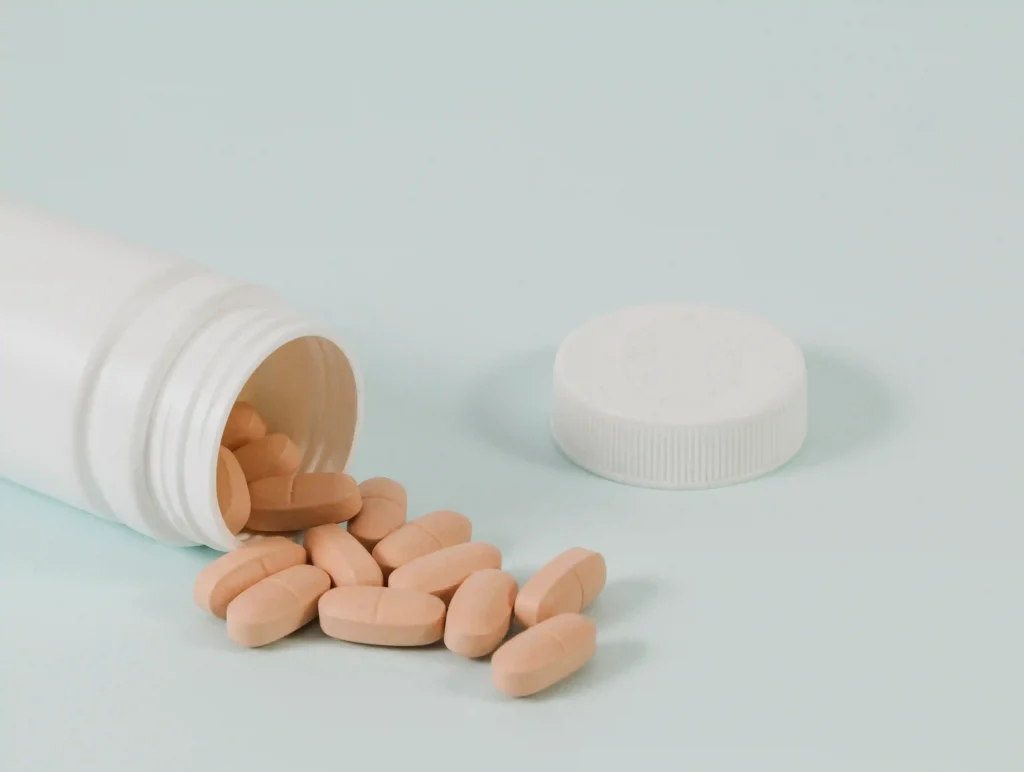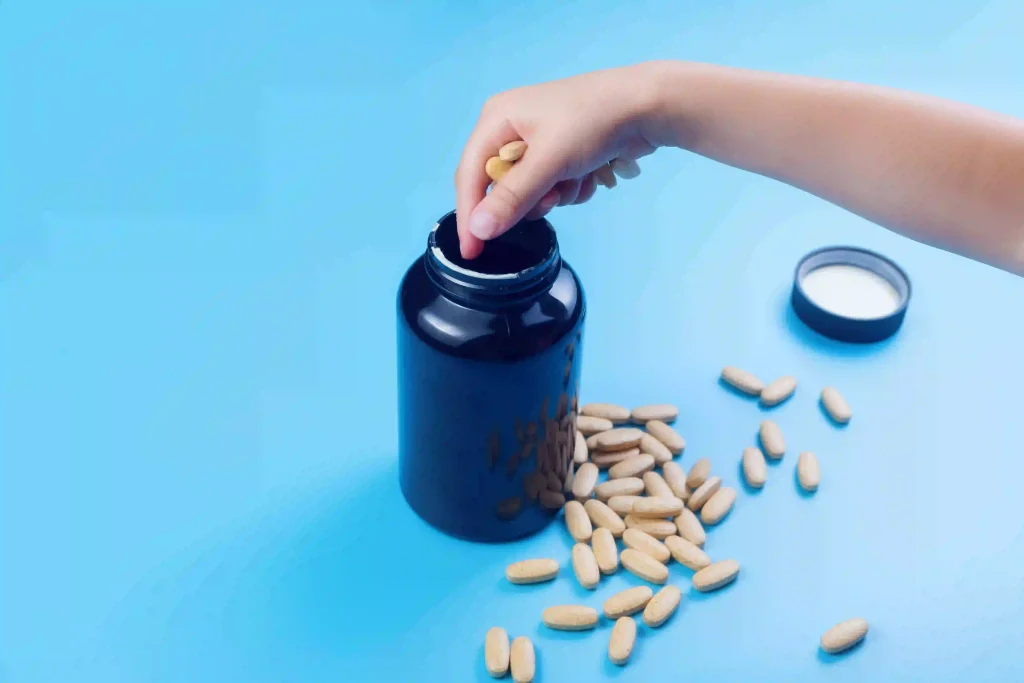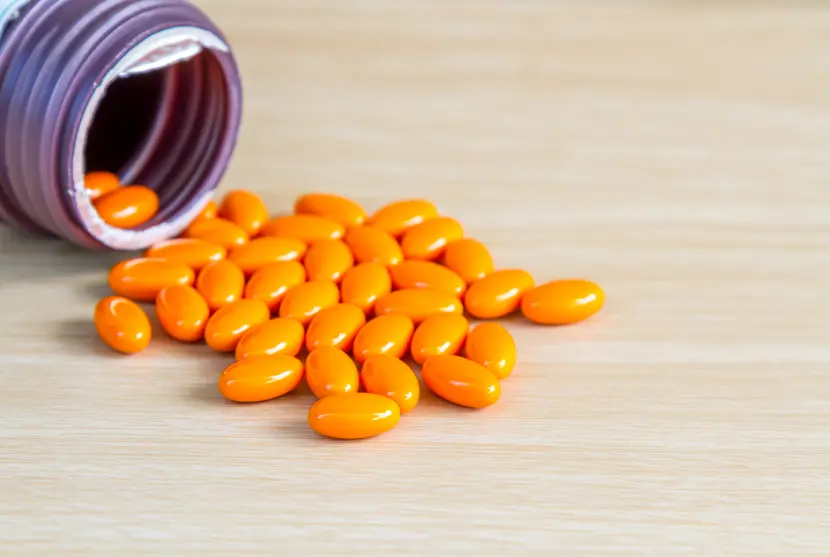Have you ever wondered why some people seem to age more gracefully than others? The answer might lie in a fascinating compound called spermidine. As someone who has been researching and writing about health products for many years, I’ve become particularly intrigued by this remarkable substance that’s making waves in the anti-aging community. The science behind spermidine is compelling, and its potential impact on human health and longevity has captured the attention of researchers worldwide. What makes this compound especially interesting is its dual nature – while naturally present in our bodies, its levels tend to decline with age, creating a growing interest in supplementation strategies.

Understanding Spermidine: Nature’s Longevity Molecule
When I first encountered spermidine supplements in my research, I was admittedly skeptical. What is spermidine, exactly? Despite its somewhat unusual name (derived from its initial discovery in sperm), this natural polyamine compound is found throughout our bodies and plays a crucial role in cellular health and longevity. The fascinating aspect of spermidine lies in its molecular structure and function – it’s a relatively simple compound that performs incredibly complex tasks within our cells. Scientists have discovered that spermidine acts as a critical regulator of various cellular processes, including protein synthesis, cell growth, and DNA stability. This multifaceted role makes it an essential component of our body’s natural maintenance and repair systems.
Think of spermidine as your cells’ personal housekeeper. Just as we regularly clean our homes to maintain order, spermidine helps clean up cellular debris through a process called autophagy. This cellular cleaning service becomes increasingly important as we age, which explains why spermidine has gained significant attention in the anti-aging field. The process of autophagy, often described as cellular recycling, helps remove damaged components within cells, reducing the accumulation of harmful substances that can lead to aging and disease. Research has shown that this cleanup process is essential for maintaining cellular health and may even help extend lifespan in various organisms, from yeast to humans.
The Science-Backed Benefits of Spermidine
Through my extensive research, I’ve discovered that spermidine benefits extend far beyond basic cellular maintenance. The scientific literature surrounding this compound continues to grow, with new studies regularly uncovering additional potential benefits. What’s particularly exciting is how these benefits appear to work synergistically, creating a comprehensive approach to health and longevity. Let me share some of the most compelling findings that have emerged from both laboratory and clinical research, supported by peer-reviewed studies and real-world applications.
Cognitive Function Enhancement
Research suggests that regular spermidine intake may help maintain memory and cognitive function as we age. In my conversations with neurologists, they often compare spermidine’s effects to giving your brain a gentle daily workout. The mechanism behind this cognitive support is particularly fascinating – spermidine appears to help maintain the integrity of neural connections and support the formation of new memories. Studies conducted at several prestigious research institutions have shown that individuals with higher spermidine levels often demonstrate better cognitive performance across various metrics, including memory recall, processing speed, and problem-solving abilities. The neuroprotective properties of spermidine may also help shield brain cells from age-related damage, potentially reducing the risk of cognitive decline.
Cardiovascular Health Support
Studies indicate that higher spermidine levels correlate with improved heart health. One particularly interesting study showed that communities consuming spermidine-rich foods tend to have better cardiovascular outcomes. The cardiovascular benefits of spermidine appear to work through multiple pathways, including the maintenance of healthy blood pressure levels, support for arterial flexibility, and protection of heart muscle cells. Research published in renowned medical journals has demonstrated that spermidine supplementation may help maintain healthy arterial function and support optimal blood flow. What’s particularly noteworthy is how spermidine appears to work at the cellular level, helping to maintain the health of the endothelial cells that line our blood vessels.
Hair and Skin Health
As someone who carefully examines beauty and wellness trends, I’ve noticed increasing evidence suggesting spermidine’s role in maintaining healthy hair growth and skin elasticity. The compound appears to support the natural regeneration processes of both hair follicles and skin cells, potentially helping to maintain a more youthful appearance. Recent studies have shown that spermidine may help regulate the hair growth cycle and support the production of collagen, a crucial protein for skin elasticity. The anti-aging effects on skin appear to work both from the inside out through oral supplementation and potentially through topical application, though more research is needed in this area.
Natural Sources: Foods with Spermidine
Before diving into supplements, let’s explore spermidine rich foods in detail. While supplements offer a concentrated and convenient source of spermidine, understanding natural food sources is crucial for developing a comprehensive approach to optimizing your spermidine intake. The fascinating aspect of spermidine-rich foods is how they often align with traditional dietary patterns that have been associated with longevity and overall health. Here are some excellent natural sources, along with their approximate spermidine content and best preparation methods to preserve this valuable compound:
Aged cheese (particularly blue cheese) contains significant amounts of spermidine, with levels increasing during the aging process. The fermentation involved in cheese production actually enhances spermidine content, making aged varieties particularly valuable sources. One hundred grams of aged cheese can provide anywhere from 200-350 micrograms of spermidine.
Mushrooms (especially shiitake) are another excellent source, with fresh shiitake mushrooms containing some of the highest levels among commonly available fungi. The spermidine content in mushrooms is best preserved when they’re lightly cooked or consumed raw. A 100-gram serving of fresh shiitake mushrooms can provide approximately 100-150 micrograms of spermidine.
Soybeans and other legumes offer substantial amounts of spermidine, particularly when fermented. Traditional fermented soy products like natto and tempeh often contain higher levels than their unfermented counterparts. The fermentation process not only increases spermidine content but also improves its bioavailability.
Whole grains, especially wheat germ and its derivatives, provide significant amounts of spermidine. The compound is concentrated in the germ portion of the grain, which is why whole grain products typically offer higher levels than refined alternatives. A 100-gram serving of wheat germ can provide up to 250 micrograms of spermidine.
Fresh green pepper, particularly when harvested at peak ripeness, contains notable amounts of spermidine. The compound is most concentrated in the flesh and seeds of the pepper, and its levels remain relatively stable even after light cooking.

Navigating Spermidine Supplements: What You Need to Know
When it comes to spermidine supplements, quality matters tremendously. Based on my research and industry expertise, I’ve found that the supplement market can be quite complex, with varying levels of product quality and efficacy. Understanding the nuances of supplement selection, dosing, and timing can significantly impact your results. After analyzing numerous products and reviewing countless user experiences, I’ve developed a comprehensive framework for evaluating and using spermidine supplements effectively. Let me share these insights to help you make informed decisions about your supplementation strategy.
Dosage Guidelines
How much spermidine per day should you take? Most studies suggest a daily dosage between 20-100mg for optimal benefits. However, I always recommend starting with a lower dose and gradually increasing it while monitoring your body’s response. This approach, often called “dose titration,” allows your body to adjust and helps identify your optimal dosage level. The research indicates that spermidine’s effects are dose-dependent, meaning higher doses may provide additional benefits, but they should be approached cautiously. Individual factors such as age, weight, overall health status, and current medication use can all influence the ideal dosage. For example, older adults might benefit from slightly higher doses due to naturally declining spermidine levels, while younger individuals might achieve optimal results with lower doses.
Forms and Absorption
Spermidine powder supplements tend to offer better absorption rates compared to capsules. The powdered form allows for more direct contact with digestive surfaces, potentially enhancing bioavailability. However, taste can be a factor – some of my readers prefer capsules for convenience despite slightly lower bioavailability. The absorption of spermidine is also influenced by several factors, including the presence of other nutrients, the timing of consumption, and individual digestive health. Some manufacturers have developed innovative delivery systems, such as liposomal formulations or delayed-release technologies, to enhance absorption and minimize degradation during digestion. Understanding these differences can help you choose the most effective form for your needs.
Side Effects and Safety Considerations
While spermidine supplements are generally well-tolerated, it’s important to understand potential spermidine side effects in detail. Through years of research and user feedback, I’ve compiled a comprehensive understanding of both common and rare reactions. The key is recognizing that individual responses can vary significantly, and what works well for one person might not be ideal for another.
Common side effects may include:
Mild digestive discomfort (usually temporary) – This typically manifests as slight bloating or changes in bowel movements during the first few weeks of supplementation. These effects often resolve as the body adjusts to the supplement.
Occasional headaches when starting supplementation – These are typically mild and short-lived, often occurring during the initial adjustment period. Some users report that taking the supplement with food or adjusting the timing of consumption can help minimize this effect.
Possible interaction with certain medications – This is particularly important for individuals taking blood pressure medications, anticoagulants, or immunosuppressants. The mechanism behind these interactions relates to spermidine’s effects on cellular processes and metabolism.
I’ve found that most side effects can be minimized by implementing specific strategies:
– Taking the supplement with food to reduce digestive impact
– Starting with a quarter or half dose and gradually increasing
– Maintaining consistent timing of supplementation
– Ensuring adequate hydration throughout the day
– Monitoring your body’s response and adjusting accordingly
Weight Management and Metabolic Health
An exciting area of research involves spermidine weight loss connections. While it’s not a magic bullet for weight management, spermidine’s role in cellular health and metabolism suggests it may support healthy weight management as part of a comprehensive approach. Recent studies have shown that spermidine may influence several key aspects of metabolic health:
Cellular Energy Production: Spermidine appears to enhance mitochondrial function, potentially improving energy metabolism at the cellular level. This optimization of cellular energy processes may contribute to more efficient metabolic function overall.
Appetite Regulation: Some research suggests that spermidine might help regulate appetite hormones, potentially supporting healthy eating patterns. This effect seems to work through multiple pathways, including influence on gut hormone production and central nervous system signaling.
Fat Metabolism: Preliminary studies indicate that spermidine may help optimize fat metabolism through its effects on cellular cleanup processes. This could potentially support healthy body composition when combined with appropriate diet and exercise.
Choosing the Right Supplement
When selecting a spermidine supplement, source quality becomes paramount. Look for products derived from natural sources rather than synthetic alternatives, as these typically offer better bioavailability and a fuller spectrum of complementary compounds. Manufacturers following GMP (Good Manufacturing Practices) guidelines demonstrate a commitment to quality and safety that’s essential in supplement production. Additionally, third-party testing provides crucial verification of product purity and potency, offering peace of mind for consumers investing in their health.

Practical Tips for Optimal Results
The key to success with spermidine supplementation lies in consistency and strategic implementation. Taking it at the same time each day helps establish a routine and may optimize absorption patterns. Combining supplementation with spermidine-rich foods creates a synergistic effect, potentially enhancing overall benefits. Proper hydration supports optimal absorption and helps your body utilize the compound effectively. Regular monitoring of your response allows for thoughtful adjustments to your supplementation strategy.
The Future of Spermidine Research
The scientific community continues to uncover promising applications for spermidine in various aspects of health and longevity. Current research focuses on immune system modulation, sleep quality improvement, and stress response optimization. These investigations may reveal additional benefits and applications in the coming years, potentially expanding our understanding of this remarkable compound’s role in human health.
Final Thoughts
As we conclude this comprehensive exploration of spermidine supplements, remember that they represent just one component of a holistic approach to health and longevity. While the research supporting spermidine’s benefits is compelling, success comes from integrating supplementation into a well-rounded healthy lifestyle. Consider your personal health goals and circumstances when deciding whether to incorporate spermidine into your daily routine, and always consult healthcare professionals for personalized advice.
The journey to optimal health is ongoing, and spermidine supplements offer an intriguing tool for supporting cellular health and longevity. As research continues to evolve, we may discover even more ways this remarkable compound contributes to human health and wellness.
Remember, informed decisions about supplementation come from understanding both the benefits and limitations of any compound. May this information guide you in making the best choices for your health journey.



